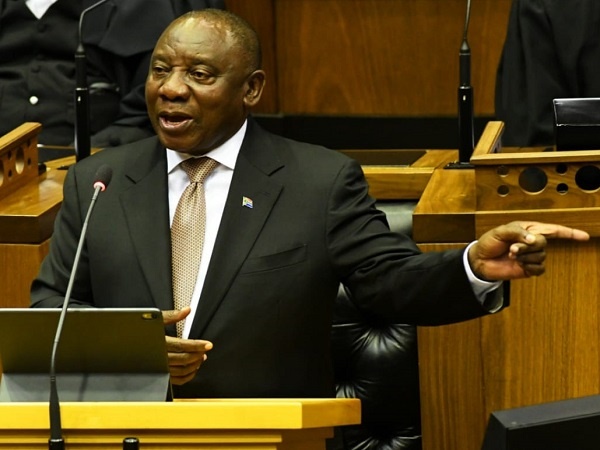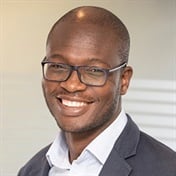
We have reached a point where many South Africans want to assist government. The president can get things done if he gives himself time to consult solution-driven South Africans in all sectors from churches to industrialists, writes Mpumelelo Mkhabela.
President Cyril Ramaphosa knows the urgency with which change is required for South Africa to grow the economy and create jobs. But he doesn't have a magic wand to do it, he says.
He wants citizens to join him on a journey towards his stated goals of reducing unemployment, violent crimes and inequality, among other priorities. The journey should better not be long, Mr President. The stated 10 years for some of the goals might give a sense of hopelessness given the fact that there is consensus that nearly a decade has already been wasted.
The other reason why some goals should not take long to be met is that South Africa has all the necessary skills and resources to turn things around. Ramaphosa's administration should be different to the previous administration. It should be open to ideas from all South Africans regardless of race, background and political affiliation.
We have reached a point where many South Africans would like to assist the government to do right thing because it would be in the best interest of all of us. Unlike in the past, there must be no gatekeeping by a few who seek to appropriate the head of state – and by extension the entire government – for themselves, their friends, comrades and families.
After his election as president, Ramaphosa undertook to be the president for all South Africans. Let it be so in practice. Let it extend to all his advisors. He must remind his Cabinet daily. Despite public concerns, well summarised by the DA's John Steenhuisen, about Ace Magashule's negative influence, the truth is that a sober reading of the Constitution would reveal that the president of the republic is the most powerful politician in the country.
The president can get things done if he gives himself time to consult solution-driven South Africans in all sectors from churches to industrialists. But solution-driven consultations are not the same as taking selfies and making each other feel good.
It is necessary that he consults key power brokers in the party, but there are many intricacies in the running of the state where it is practically impossible or would be reprehensive in principle for the president to be micro-managed by party factionalists.
South Africans – regardless of party-political affiliation – have a contract with the president in the form of the oath of office. The oath of office is underwritten by the Constitution. It has all the necessary mechanisms for the president to be bolder when circumstances require and to tread carefully where necessary.
All should be done in the interest of South Africa, not for the pacification of some individuals or factions. The president should be more worried about the wellbeing of South Africa as a whole. That's what he signed up for. If he does that well, there is no doubt that he and the party he leads will accrue deserved public accolades in the form of improved voter sentiments.
If some individual power broker is unhappy with the president's responsible exercise of his powers but the public is generally happy, the individual concerned would be isolated by the whole society. History will remember the president as a person who stood with the public, not with individuals who have proven that they are interested in lining their pockets.
An attempt to prematurely threaten to oust the president who stands with the people will inevitably throw the ANC out of power. The signs are there for all to see: South Africans don't want a self-centred governing party anymore.
Given the fact that Ramaphosa, unlike his predecessor, does not have financial problems – or at least not that we know of – he should not be held to ransom. He should aim higher than merely being happy to be occupying high office.
He should understand that the office was long defiled back in 2009. Merely occupying it now is not worth it until its integrity is fully restored. And that cannot happen if the office is dictated to by individuals who have no integrity to speak of.
Ramaphosa should be able to impose tough targets on Cabinet ministers. Retaining a position in Cabinet must no longer depend on willingness to violate the Constitution in the interests of friends and family. It must be about meeting presidential targets by complying with the Constitution.
During the debate on the State of the Nation Address, some promising details of government's plans were revealed by Trade and Industry Minister Ebrahim Patel. If 80% of what he said in Parliament about trade, investments and jobs were to be implemented in the short timeframe he promised, there is no doubt South Africa can turn the corner.
Similarly, Mineral Resources and Energy Minister Gwede Mantashe spoke of private sector investment commitments worth billions of rand. If his department assists investors to execute the investment projects speedily, there are many jobs that can be created and/or saved.
Despite the overall gloomy picture of state-owned enterprises, Minister Pravin Gordhan's undertaking to go ahead with Eskom's restructuring plans is also promising. One gets the sense of urgency, which is a good thing. So is the intention to reroute SAA to good governance by seeing private sector equity partners.
From all the pronouncements by key economic policy makers – the president himself, Gordhan and Finance Minister Tito Mboweni – there is no doubt that government is committed to fixing SOEs speedily. But given the many broken promises in the past, South Africans are justified to say: "We will believe it when we see it." Total despondency is, however, not justifiable.
Where Ramaphosa appears to be lacking, is in the area of foreign policy. He bullishly stated that he would like to see South African products on the shelves across the African continent. It was a well-meaning statement about the importance of collaborating with domestic businesses in the execution of foreign policy in a way that boosts the domestic economy.
But such messages should best be couched in the necessary diplomacy coupled with the undertaking to encourage South African businesses to invest in other African countries. Or else it can trigger unnecessary reaction from countries who fret about being dominated by a big brother next door. In short, Ramaphosa needs to develop a coherent foreign policy with the right instruments and rhetoric to execute it.
South Africa is well positioned to benefit rather than being a victim of the global trade spats for example between the United States (US) and China and between the US and India. But that requires deft policy crafting.
The failure to craft precise foreign policies covering a wide range of issues that are in the national interests has led to Ramaphosa and other officials harping on nice oversimplifications like a "better South Africa, a better Africa and a better world". It's about time we updated the foreign policy slogan and became realistic.
- Mkhabela is a regular columnist for News24.
** Want to respond to the columnist? Send your letter or article to voices@news24.com with your name, profile picture, contact details and location. We encourage a diversity of voices and views in our readers' submissions and reserve the right not to publish any and all submissions received.
Disclaimer: News24 encourages freedom of speech and the expression of diverse views. The views of columnists published on News24 are therefore their own and do not necessarily represent the views of News24.




 Publications
Publications
 Partners
Partners























